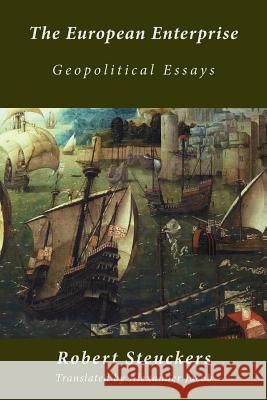The European Enterprise: Geopolitical Essays » książka
The European Enterprise: Geopolitical Essays
ISBN-13: 9780994595829 / Angielski / Miękka / 2016 / 314 str.
In an age of rampant globalisation the study of geopolitics assumes a crucial, and urgent, significance. While geopolitical considerations have always ruled imperial structures in the past, the present state of international politics, where America postures on the world-stage as sole hegemon, demands a renewed attention to the historical, economic, cultural and spiritual bases of the major empires of the European mainland. After the last great war, the main counterpoise to the ambitious American international enterprise has been the Soviet Union and its successor, the Russian Federation. Western Europe, however, has been hampered in its natural development as the matrix of "western civilisation" - which includes the Russian and the American - by the severe calamities it suffered in the two world-wars. Steuckers' essays, which complement the Russian Eurasianist works, are therefore of particular importance in emphasising the western European role in a new world-order that will be directed not by the self-aggrandisement of capitalistic states but by the historical maturity requisite for genuine cultural development within and outside Europe.
In an age of rampant globalisation the study of geopolitics assumes a crucial, and urgent, significance. While geopolitical considerations have always ruled imperial structures in the past, the present state of international politics, where America postures on the world-stage as sole hegemon, demands a renewed attention to the historical, economic, cultural and spiritual bases of the major empires of the European mainland. After the last great war, the main counterpoise to the ambitious American international enterprise has been the Soviet Union and its successor, the Russian Federation. Western Europe, however, has been hampered in its natural development as the matrix of western civilisation - which includes the Russian and the American - by the severe calamities it suffered in the two world-wars.Steuckers' essays, which complement the Russian Eurasianist works, are therefore of particular importance in emphasising the western European role in a new world-order that will be directed not by the self-aggrandisement of capitalistic states but by the historical maturity requisite for genuine cultural development within and outside Europe.











